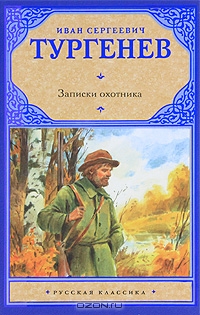 |
| Lev Tolstoy |
Because I spent so much
time in St. Petersburg, I recently decided to move further south to remain in
Moscow for a time. Here in Moscow, I have heard of the great author, Lev
Tolstoy. I have read his major works, Anna Karenina and War
and Peace, but I have since heard that his literary works have taken a turn
in a different direction. I have decided to take a tour down to his estate
south of Moscow in order to meet the him and become more acquainted with his
current philosophy. Before I take my journey, I have decided to review one of
his most recent stories, "Смерть Ивана Ильича" or "The Death of
Ivan Ilych."
In "The Death of
Ivan Ilych," Tolstoy has fashioned his characters in a different way.
Rather than making Ivan Ilych an individual character, he has made him an
"everyman" (Terras 452). I remember the beautiful details he included
in Anna Karenina and War and Peace, but this
novella includes details that only further the plot or message of the story
(452). Essentially, the story seems to be a vehicle for Tolstoy's condemnation
of upper-class society, modern medicine, and insincere living.
 |
| A cover for the novel. |
The story follows the
life of Ivan Ilych from his childhood into adulthood. However, the first
chapter of the novella provides a contrast to the rest of the novel, yet it
probably provides another way for Tolstoy to frame his novella. The first
chapter follows Ivan Ilych's colleagues as they discuss his recent death,
attend his funeral, and promptly forget him and his misfortune (Tolstoy 87-95).
Ivan Ilych goes to school, gets married, and gets a job working in the state.
He and his wife gradually become consumed with receiving promotions and
advancing in society. They have children, and while their marriage is not
entirely happy, they continue to tolerate each other and participate in
society. Eventually, Ivan Ilych becomes ill with something no doctor can treat.
He undergoes extreme pain and discomfort and eventually dies.
This bleak story
emphasizes the shallowness and selfishness of Ivan Ilych and his wife. As Ivan
Ilych is dying, his wife remains concerned with appearances and seems
disconnected from Ivan Ilych’s needs (140-141) Even at Ivan Ilych’s funeral,
his wife is more concerned with money than with mourning (93-4). In this way,
Tolstoy satirizes the lives of the upper-class. He calls attention to how
absurd material and societal gain is when death and pain threaten.
 |
| A sketch of Ivan Ilych |
Towards the end of Ivan
Ilych’s life, the religious elements of the novel become more clear. Gerasim,
his manservant seems to be the only selfless character, and Gerasim is the only
peasant character (Donnelly 81). Additionally, Ivan Ilych begins to wonder if
he had been wrong all along with his life choices (Tolstoy 140). He undergoes a
painful death, but at the last moment, he sees a light (143). I believe this
life alludes to a Christianity symbolically (Donnelly 86). Tolstoy seems to be
using satire to condemn the rationalist way of thinking that dismisses a higher
power (80).
Tolstoy’s change in
style has surprised me with its contrast. A story like “The Death of Ivan Ilych”
alludes to a huge shift in ideology when compared to his previous stories.
However, I still admire his skill.
Works Cited
Donnelly, Jerome. "Tolstoy's the Death of
Ivan Ilych: Satire, Religion, and the Criticism of Denial." Logos: A Journal of Catholic Thought and Culture, no.
2, 2013, p. 73. EBSCOhost,
ezproxy.uvu.edu/login?url=http://search.ebscohost.com/login.aspx?direct=true&db=edspmu&AN=edspmu.S1533791X13200039&site=eds-live.
Terras, Victor. A History of Russian Literature. Yale University Press, 1991.
Tolstoy, Leo. The Death of Ivan Ilych and Other Stories. Barnes and Noble Classics, edited by George Stade, 2004.


















